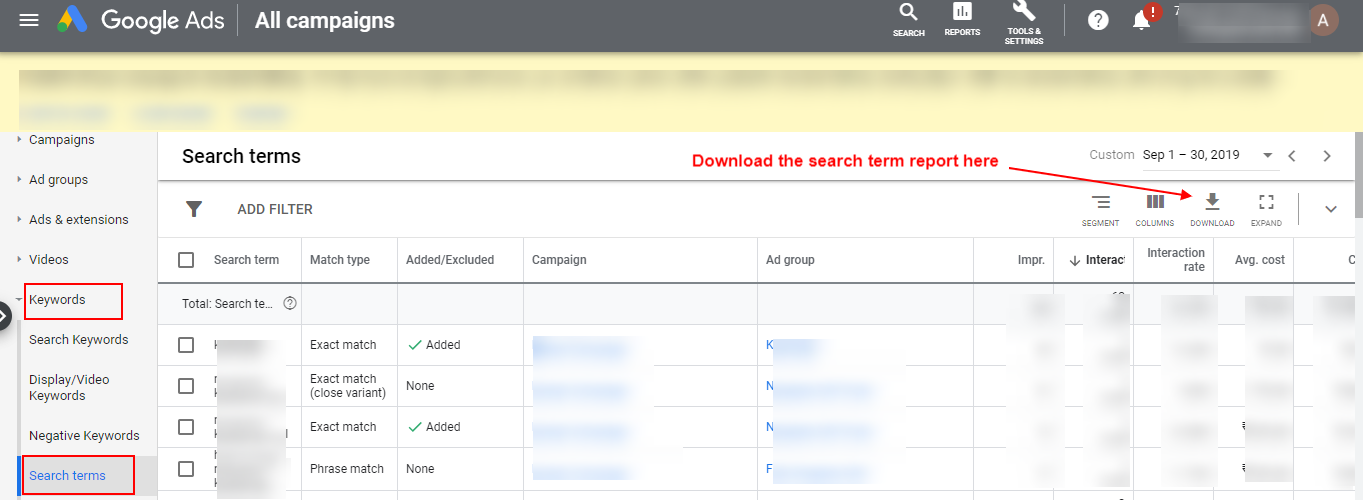For a healthy Google Ads account, you need to keep reviewing the search terms that triggered your ad. It can be quiet a tedious task to do. The Search Terms Report makes it a little easier, thus saves time.
Before jumping into the ideas to use your search term report, let’s get to know the basics first as to what search term reports are and where can we find them.
A search term report is a list of the search terms (a search term is a query a user enters on the search engine platform to find related information) that triggered your ad t and how they performed.
Once you login to your Google Ads account, you can navigate through Keywords then Search Terms to download the report.

With this report, you can identify the relevant and irrelevant search terms to your business. Add relevant ones to your keyword list which helps to boost click-through rate and ad performance. Irrelevant keywords can be added as negative keywords.
Note: Karooya’s Negative Keywords Tool for Google Ads provides Negative keyword recommendations while saving 10-20% of your search spend for free. This tool is now Free for accounts with ad spend less than $10,000 per month. Sign up and start saving your ad budget now.
4 Ideas to Use Your Search Terms Report
The search terms report helps you manage your budget efficiently, saving you from wasting impressions and clicks on the irrelevant queries. Apart from this, there are other ways in which you can use your search term report.
Here, we list down four of them:
1) To Get Match Type Ideas – You can develop an understanding of what match type to assign to your keyword from the search terms report. For example, you used the keyword Wellington Hotels (brand name) in broad match, but on evaluating the report find that you ended up showing for search terms such as Hotels in Wellington too. In such a case it would be better to add the keyword in the phrase match type instead.
Similarly, the report could also be helpful when you start a new campaign with broad match keywords. After running the campaign for a good amount of time, the data collected in the report can help you find keywords that could be restricted by using a phrase or an exact match. These keywords could also be shifted to a separate and more focused ad group.
2) To Find Ad Group Ideas – Through the report, you can identify a probable set of keywords that can be grouped together in a new ad group. For example; you created your campaign around shoes for men, but evaluating your search terms report, shows that keywords such as running shoes for men, evening shoes for men, men’s formal footwear are likely keywords. You can then use these terms to design ads separately in a more focused ad group. Similarly, with the time you can get more useful insights into new ad group opportunities.
3) To Identify Keyword Trends – This report is a great source to understand if the keywords perform differently seasonally and also identify the current trending terms related to your business/product. So, you might be bidding on a completely irrelevant term, and the report can give insight into that.
4) To Understand Your Audience – As a marketer, it is difficult to understand user behavior. But through this report, you can take a step further to understand the exact requirements of your audience. What are their likings? What are they searching for? Are you able to keep up with their requirements? Are their demands changing?
All these above questions will help you to understand your audience better and you can evolve your campaigns around the needs of your audience.
Related Links





Stop the wasted ad spend. Get more conversions from the same ad budget.
Our customers save over $16 Million per year on Google and Amazon Ads.